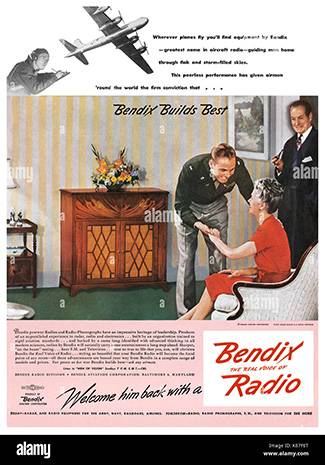The Radio Era
December 19, 2023

- Author: CTA Staff
Since CTA’s start in 1924 as the Radio Manufacturers Association, U.S. technology companies have had an advocate on Capitol Hill and across the country for innovation and free enterprise. As the competitive and regulatory climate has changed, so has our association. Find out in this five-part series how CTA has led industry growth and supported technology innovations that are solving big global challenges. This article, the series first, tells the CTA story from 1924 to 1949.
In 1924 when CTA began serving U.S. tech interests, Johnson & Johnson had just begun mass producing Band-Aids. IBM was founded, and the first television pictures were successfully transmitted. The average house cost about $2500. A dozen eggs cost 25 cents. Radio was the nation’s most powerful medium, helping to bridge cultural divides. With radio, audiences from coast to coast listened to the same programs at the same time, an experience that fostered appreciation for the sounds, tastes, view points and experiences of the nation’s myriad communities. From 1924 to 1949, CTA as the Associated Radio Manufacturers was working to assure the medium’s integrity. Here’s how.
April 16, 1924: The Associated Radio Manufacturers is Founded
The Associated Radio Manufacturers was formed in response to patent fights, free-for-all merchandising practices, a lack of cohesive technical standards and looming legislation affecting radio. Informal gatherings of radio manufacturers in Chicago led to the creation of a formal association on April 16, 1924, and the name was changed to the Radio Manufacturers Association (RMA) several weeks later.
July 1925: A Call for Standards
In response to a growing call for technical standards in the radio industry, RMA adopted a formal resolution to develop its own RMA-approved industry standards. Early targets for standards included color-coded wiring, dimensions for plugs, jacks and sockets, and markings for transformers.
1927: Legislation Creates the Federal Radio Commission
RMA formed an industrywide Radio Coordinating Committee that directed and lobbied to shape the newly passed Radio Act. The legislation established the Federal Radio Commission, which later became the Federal Communications Commission (FCC). Congress adopted 90% of the recommendations put forward by RMA and the Radio Coordinating Committee.
1933: RMA Moves to Washington, D.C.
Struggling with the Great Depression, as both membership and revenue were declining, RMA reorganized. It shuffled its New York and Chicago offices, combining them in a Washington, D.C., location. The move to Washington better positioned RMA to make use of New Deal and National Recovery Administration initiatives.
Late 1930s: RMA Takes on Television Standards
Despite RMA’s name, the organization was heavily invested in experimentation with, and regulation of, television. It developed the first proposed standards for television that the FCC quickly adopted. This work led to the beginning of commercial television broadcasting in America.
1940s: World War II and Radio Manufacturing

RMA member Bendix Radio advertises “The Real Voice of Radio” in 1945. Source: Alamy.
RMA members undertook a massive effort to convert manufacturing to a war footing. Nearly all civilian radio production was earmarked for the war effort. The industry underwent massive growth and change, from an estimated $240 million in prewar factory sales to $4.5 billion by 1944. RMA membership grew once more as radio manufacturers joined to get the latest updates on war production initiatives and stay ahead of Washington goings on.
Key takeaway from the CTA Radio Era: Industrial disruption and a changing sociopolitical climate proved to be tech-innovation fuel. The technology industry demonstrated its utility as a catalyst to transformation in the face of political and economic discord.
Learn More About CTA's History
Join our community of innovators and shape the future of technology.